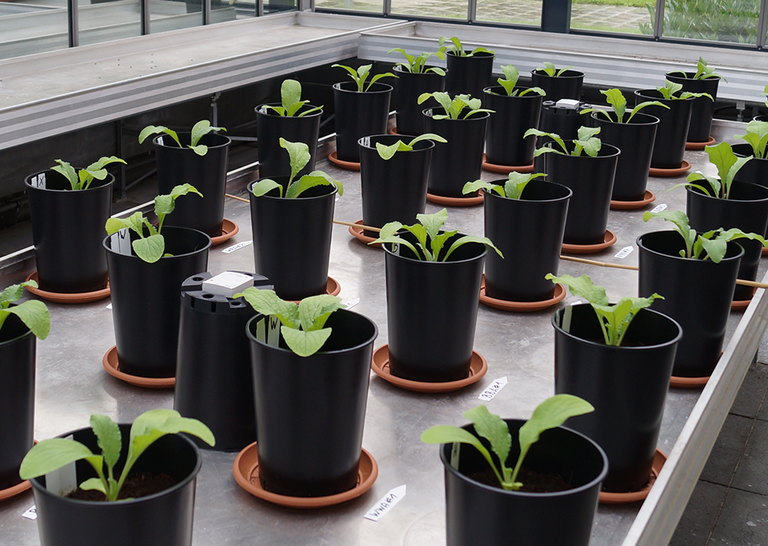Indoor cultivation of high quality specialty plant crops
Vertical / indoor farming, i.e., the cultivation of plants under very well controlled conditions, has great potential in terms of product quality and safety. Cultivation conditions such as temperature, humidity, CO2 content and light can be precisely controlled for each plant, thus enriching desirable ingredients or reducing undesirable ones. However, this requires intensive research and development work to optimize cultivation conditions as well as appropriate quality control measures in the vertical farm. Targeted control of ingredient profiles is not only of interest with regard to fresh products such as salads or herbs, but also in the food processing industry. For example, high-value ingredients can be individually enriched, and plant raw materials can be made available all year round at a constant level of quality.
In the In4Food project, the Department of Safety and Quality of Fruit and Vegetables, together with the Fraunhofer Institute for Molecular Biology and Applied Ecology IME, the Julius Kühn Institute, Symrise AG, VAN HEES GmbH and nadicom Gesellschaft für angewandte Mikrobiologie mbH, is working on the indoor cultivation of selected herbs and other raw material plants for flavouring foods. In addition to optimizing cultivation parameters with regard to added value, quality and safety, the project aims to identify microorganisms that stimulate plant growth under indoor conditions.
The work of the Department of Safety and Quality of Fruit and Vegetables is focused in particular on the plant borage, with the aim of reducing the levels of pyrrolizidine alkaloids, which are of health concern. Pyrrolizidine alkaloids are a large group of plant toxins that mostly enter food through contamination. However, borage (Borago officinales) is a plant that is capable of producing pyrrolizidine alkaloids itself. In Germany it is traditionally used as a culinary herb, e.g., as salad and cucumber seasoning or as an ingredient in the popular Hessen speciality "Frankfurt Green Sauce" (PGI). It is also a sensorially important ingredient in some commercial frozen herb mixes. Regulation (EU) 2020/2040 set the first ever maximum levels for pyrrolizidine alkaloids in certain foods, including for borage. As part of the project In4Food, the Department of Safety and Quality of Fruit and Vegetables is developing a multi-method for specifically determining pyrrolizidine alkaloids in borage, which will be used which will be used to analyze borage samples from indoor cultivation trials. In addition, metabolomic analyses will be performed using GC×GC-MS and LC-MS to enable the simultaneous detection of hundreds of primary and secondary metabolites and achieve a better understanding of the influence of cultivation conditions on pyrrolizidine alkaloid biosynthesis.
In4Food is a project of the innovation space NewFoodSystems funded by the German Federal Ministry of Education and Research.


